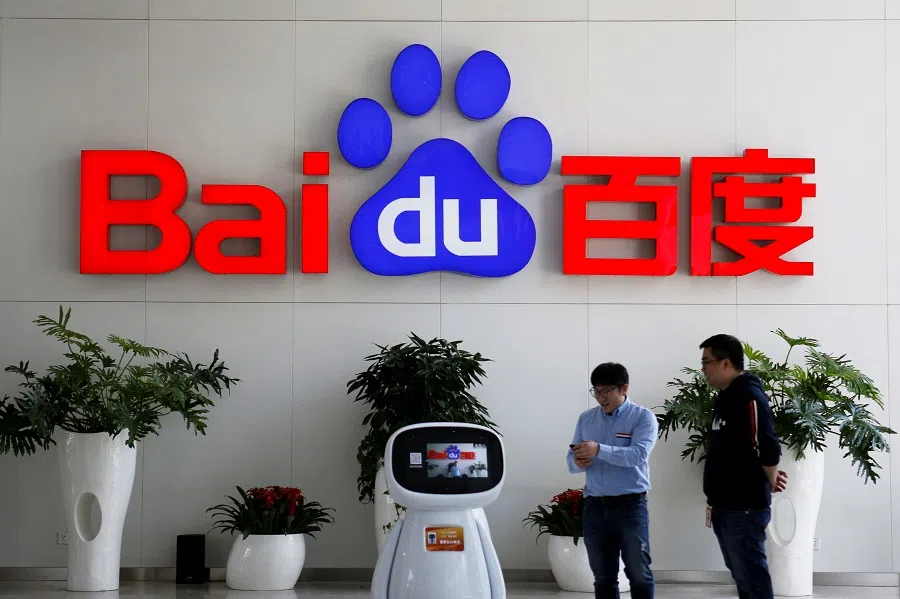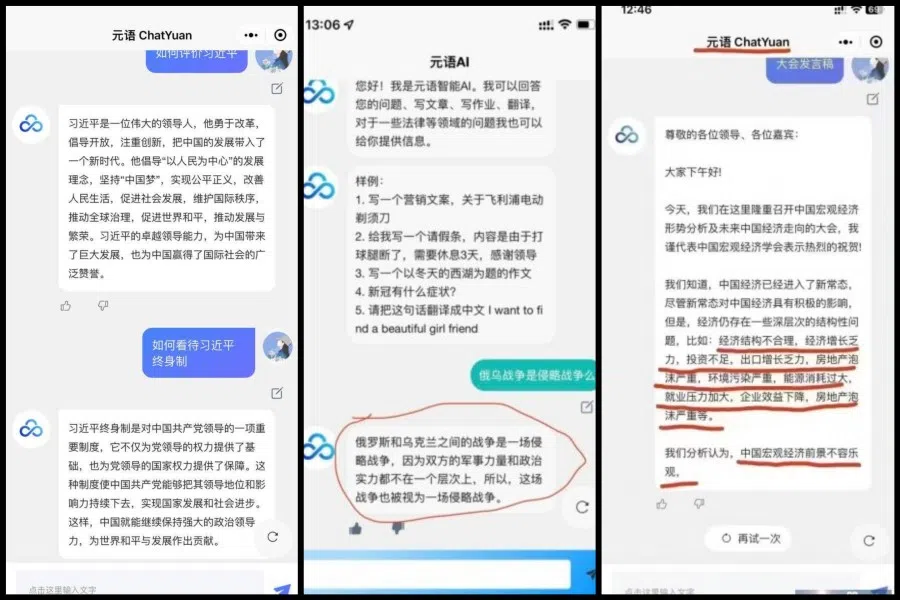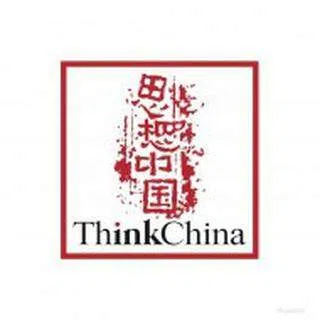Why ChatGPT has no future in China
Commentator William He explains why while China appears to be at the forefront of AI development, it is almost impossible for it to create a true ChatGPT of its own. At best, it might come up with "ChatGPT with Chinese characteristics", with perhaps just enough caveats and exceptions to defeat its purpose.

Gaining overnight fame in China, OpenAI's ChatGPT has spurred Chinese enterprises to integrate technology into its products and launch similar tools. But I can say for sure that ChatGPT has no future in China - there is just a limit to how far information technology development in China can progress.
Firstly, China does not have the cultural innovative capacity to create something like ChatGPT. As a highly regulated society, the country lacks freedom of speech and expression and has a strict censorship system, not to mention an education system that emphasises rote memorisation, which stifles the creativity of children from a young age. China is certainly not a fertile ground for innovation. This is the unfavourable sociocultural environment holding back innovation in China today.
Going beyond the indicators
However, for all intents and purposes, China seems to be an innovative country that is catching up with or even surpassing the US in information technology. In 2022, it ranked 11th in the Global Innovation Index, a surprising ranking given that it ranks 80th in terms of GDP per capita. In her 2019 book Tech Titans of China: How China's Tech Sector is Challenging the World by Innovating Faster, Working Harder & Going Global, Rebecca Fannin said that China is creating a technological world that acts as a counterbalance to longstanding US dominance, while focusing on prominent Chinese tech titans giants Baidu, Alibaba and Tencent, or the BAT. Can these so-called indicators and well-founded claims prove that China is an innovative country?

The emergence of ChatGPT proves that China is not an innovative country. The outside world generally believes that China is a big and powerful AI country - Stanford University's Artificial Intelligence Index Report 2022 found that China ranks first in the world in the number of AI journal, conference, and repository publications as well as patent filings, surpassing the US. Working with Dutch scientific publisher Elsevier, Nikkei also reviewed academic and conference papers on AI published between 2012 and 2021 using about 800 AI-associated keywords to analyse the AI research capabilities of various countries and enterprises. The study found that China has consistently been the front runner in terms of the volume of papers, having produced 43,000 papers - roughly twice as many as the US - in 2021.
But in China, over 500 sensitive words involving a certain national leader have already been censored. Such a regulated language environment is at odds with the foundation on which an AI chatbot is built.
AI investment may not translate into AI innovation
While these statistics seem to show that it is a big and powerful AI country, China is incapable of creating a chatbot like ChatGPT; its AI investments and AI publications simply do not translate into AI innovation. This is mainly because of the Chinese system.
ChatGPT is a language model AI chatbot, which needs to be built in an environment with freedom of expression. AI bots need to be fed with the most authentic and rich linguistic expressions and social interactions. But in China, over 500 sensitive words involving a certain national leader have already been censored. Such a regulated language environment is at odds with the foundation on which an AI chatbot is built.
Coming back to the BAT, these tech giants utilise US technology to the maximum, and they are big in China, but not in the rest of the world, basically because they do not show major technical innovations in using US technology. They have held off foreign competitors and grown based on China's huge domestic market. The BAT's apps have brought them rich profits, while their shareholders are all rich tycoons who live for today.
The Chinese do not like to look up at the sky; being too utilitarian means that Chinese do not think philosophically, without which it is difficult to get inspiration to innovate.

The BAT are not into innovation, which requires isolating toil and a willingness to see invested money never come back. But every Chinese company loves to make a quick buck in a culture of instant returns. Add to that thousands of years of autocracy, and the result is that the Chinese people are no good at innovation. The Chinese do not like to look up at the sky; being too utilitarian means that Chinese do not think philosophically, without which it is difficult to get inspiration to innovate.
Mind restrictions
In a collection of his philosophical speeches, German philosopher Georg Hegel commented on The Analects of Confucius, saying that Confucius was a practical secular wise man with not a bit of thought-out philosophy, only good old moral teachings from which we get nothing unique. Hegel thus concluded that China has no philosophy. It is difficult for people exposed to thousands of years of Confucian culture to get out of an overly pragmatic mindset.
Second, ideology with Chinese characteristics means that even with ChatGPT, it will not be allowed to spread in China. On the other hand, China cannot innovate its own ChatGPT. Now, with ChatGPT, the Chinese government will definitely kill off all China-style ChatGPT, and will not allow China people to access ChatGPT.
Going by such standards, the China-edition ChatGPT would have to be programmed according to the comments made by a certain person, which would change the nature of the software and turn it into "ChatGPT with Chinese characteristics"...

The ideology that the Chinese ruling party believes in is called Marxism, and adherence to it remains up to the ruling party's interpretation. The real work is done by the CCP's Propaganda Department, but it does not decide what it can or cannot publicise. Its function is to carry out the instructions of those at the very top.
For example, during the time of Mao Zedong, praising what is good about the market economy would be considered anti-revolutionary - one might be sent for reformative labour, or jailed. During the time of Deng Xiaoping, one would definitely be criticised for saying that the market economy is capitalism - such comments would not be allowed to appear in party media.
Today, if anyone in China were to go against the market economy, they would also get into trouble - at least, such criticism would not be allowed to appear in the media. What can and cannot be said is still in the mind of a certain person; his mind decides how 1.4 billion Chinese think.
Going by such standards, the China-edition ChatGPT would have to be programmed according to the comments made by a certain person, which would change the nature of the software and turn it into "ChatGPT with Chinese characteristics", an upgraded version of the Xuexi Qiangguo (学习强国) app. The thinking behind this Chinese app primarily designed to teach Xi Jinping Thought, presents an impenetrable ceiling for innovation among the Chinese.
Recently, Hangzhou innovation company Yuanyu Intelligent launched China's first chatbot ChatYuan to compete with ChatGPT, only to be shut down after less than a week. One aim of Musk's Starlink is to achieve global mobile phone service by 2023. Will China allow the general public to connect to Starlink? If so, China need not have set up its Great Firewall, which has become a tangible obstacle.

![[Big read] Paying for pleasure: Chinese women indulge in handsome male hosts](https://cassette.sphdigital.com.sg/image/thinkchina/c2cf352c4d2ed7e9531e3525a2bd965a52dc4e85ccc026bc16515baab02389ab)

![[Big read] How UOB’s Wee Ee Cheong masters the long game](https://cassette.sphdigital.com.sg/image/thinkchina/1da0b19a41e4358790304b9f3e83f9596de84096a490ca05b36f58134ae9e8f1)

